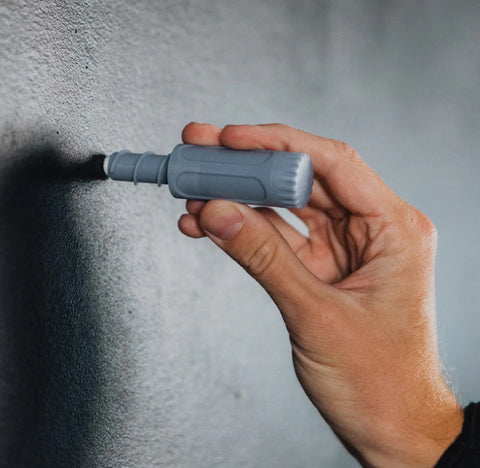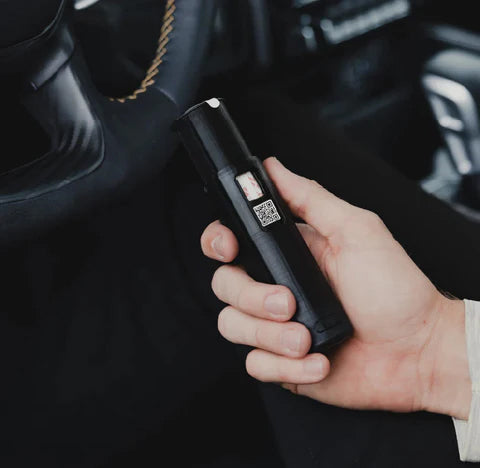Thirdhand smoke is the nicotine and other chemicals from cigarette smoke that remain on surfaces long after someone has smoked. These residues can then be ingested, inhaled, or absorbed through the skin, potentially increasing the risk of certain cancers and other serious diseases.
No, our test kits only detect nicotine and nicotine metabolites found in tobacco smoke and vapor residue. We are developing a solution for marijuana smoke residue (delta-9-THC) currently.
Yes. Like most at-home testing solutions, our test kits are single-use to preserve the accuracy and integrity of each test result and avoid cross-contamination from prior inspections.
Yes. Each test kit has a shelf life of 18 months.
The duration that smoke residue remains on common surfaces depends on several factors, including temperature, humidity, surface material, indoor smoking frequency, and cleaning frequency. If left untouched, smoke residue can persist for months or even years. The good news is that smoke residue and traceable nicotine can be cleaned and removed from most non-fabric, non-porous surfaces such as drywall, plastics, metals, and glass. However, traceable nicotine and other smoke-related chemicals are extremely difficult to completely remove from fabric surfaces, such as a vehicle’s headliner or furniture.
Yes, our test kits can detect nicotine vape residue, although the amount is unclear due to the differing characteristics between vapor and smoke.
We recommend standardizing a "testing site" for each property or unit. This could be a living room ceiling fan, a wall, or a bathroom air vent—it's up to you. Properly cleaning this established testing site immediately after each inspection and again before a new tenant moves in is crucial to “reset“ for future exposure. This way, any new contamination can clearly be attributed to the responsible party. Additionally, performing the inspection in front of the tenant helps avoid any claims that the test was used incorrectly or maliciously.
It’s wise to assume that our test results alone wouldn't suffice for an eviction as standalone evidence for a single violation. Instead, a comprehensive timeline of violations would need to be gathered and presented, with our test results serving as supporting evidence alongside other records of violations, such as property damage, warnings, neighbor complaints, and correspondence.
There is no prohibition on using DIY nicotine testing solutions in legal cases, similar to other tools that measure or detect harmful substances such as lead, radon, and asbestos. Should you decide to conduct an inspection with our test kits, you can present the results to the court and move them into evidence. While the other party may object, you would have the opportunity to explain the test's background, the documented timeline of violations, and its adherence to provided instructions and guidelines. Though our test results may be presumptive, it’s worth noting that there is precedent for smoke odor, neighbor complaints, and other forms of evidence being considered in civil cases.
We do not recommend painting over contaminated surfaces as a "cleaning measure" following a move-out. For the health and safety of future tenants, it is highly recommended to clean and sanitize any contaminated surface before painting. This greatly decreases the possibility of traceable nicotine triggering a future inspection.
No, our test kits will not detect residue from a single cigarette. In an average-sized room or vehicle cabin, a positive result is likely to be triggered by about 6-10 cigarettes or more. Our screening threshold is 10.0 ng/mL of nicotine and 0.2 ng/mL of cotinine (a nicotine metabolite), which is extremely sensitive. This is the same threshold used in hair follicle tests by insurance companies.

